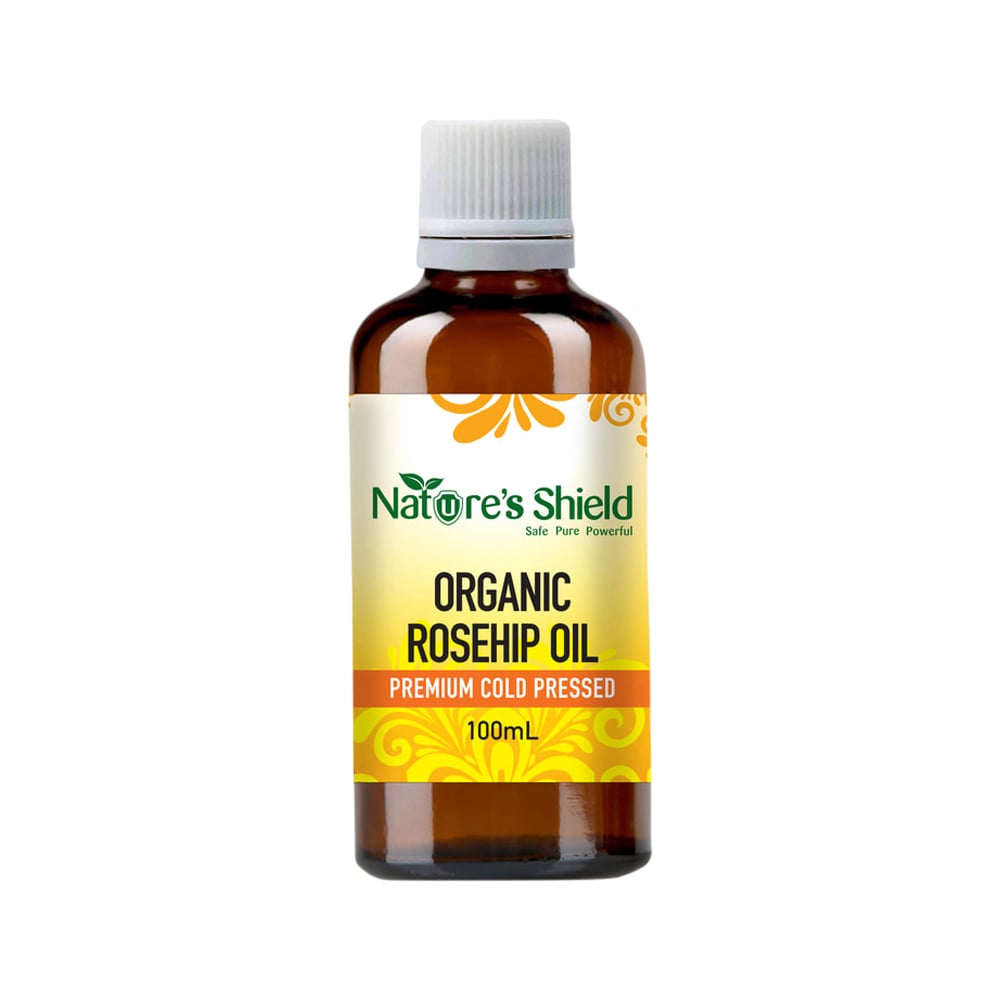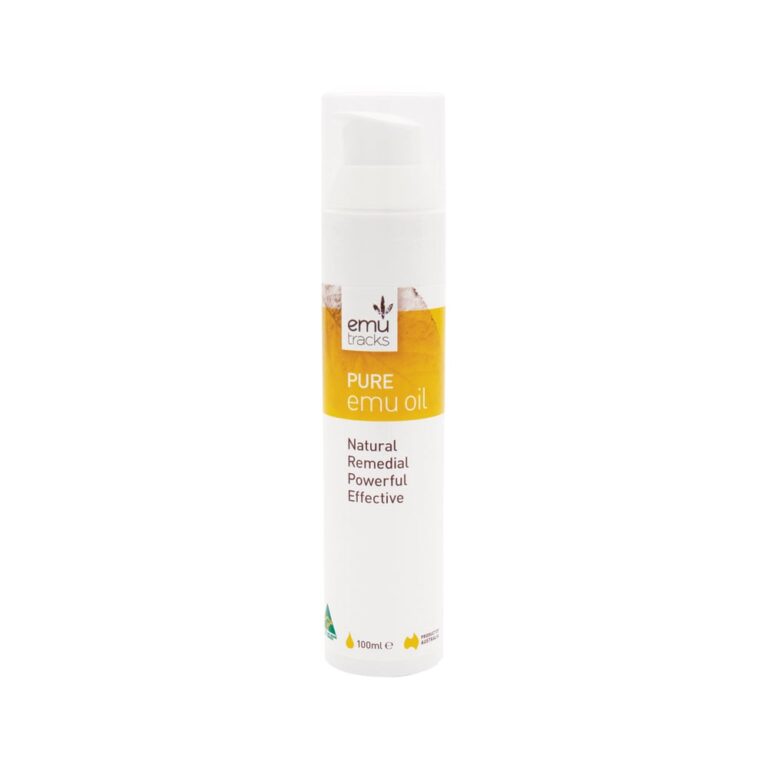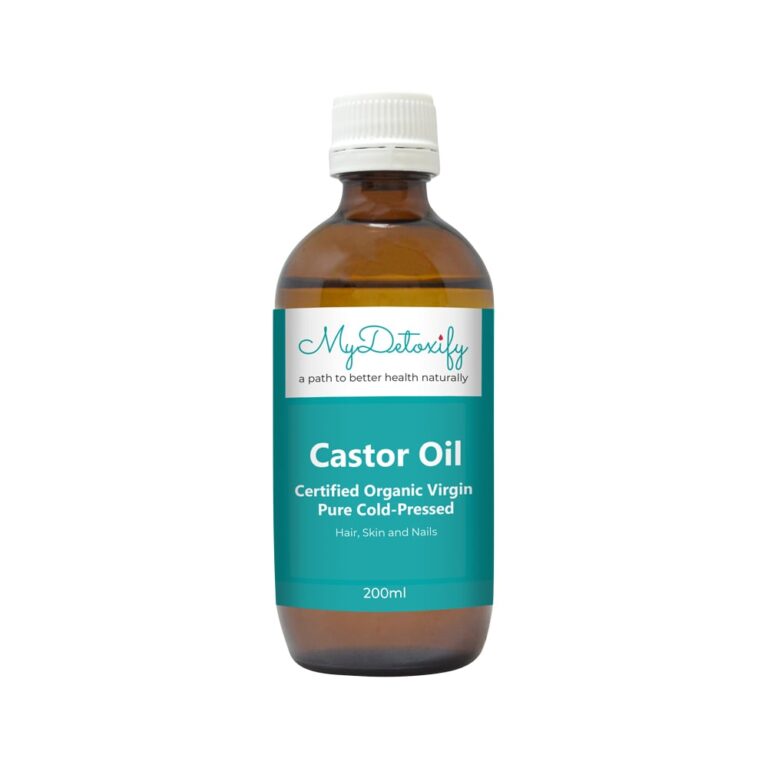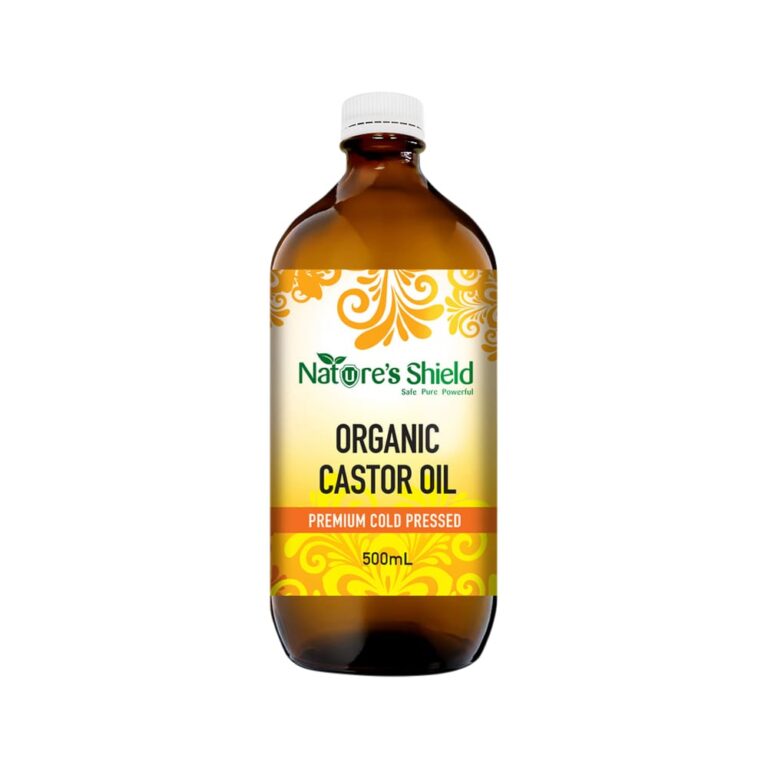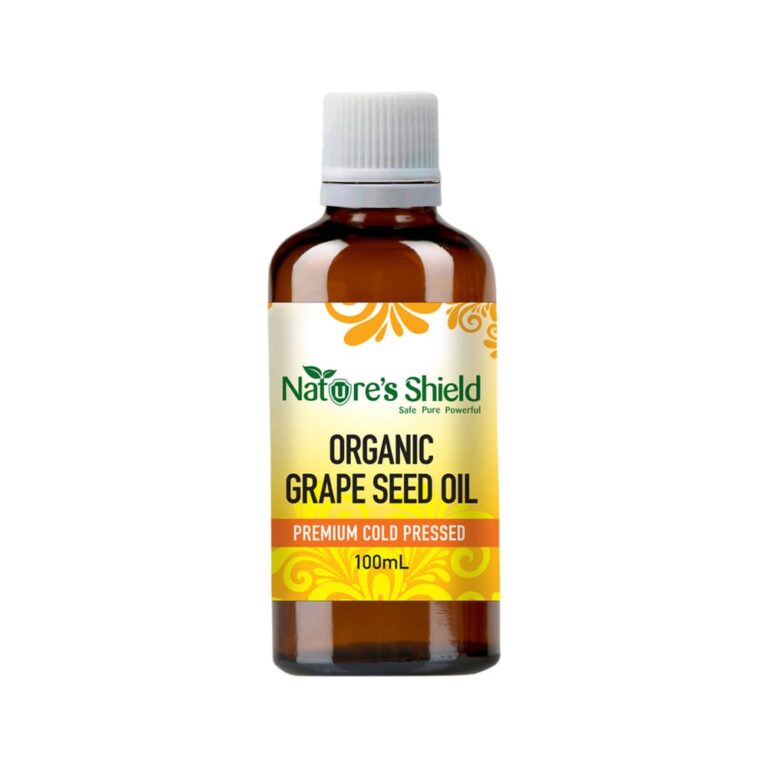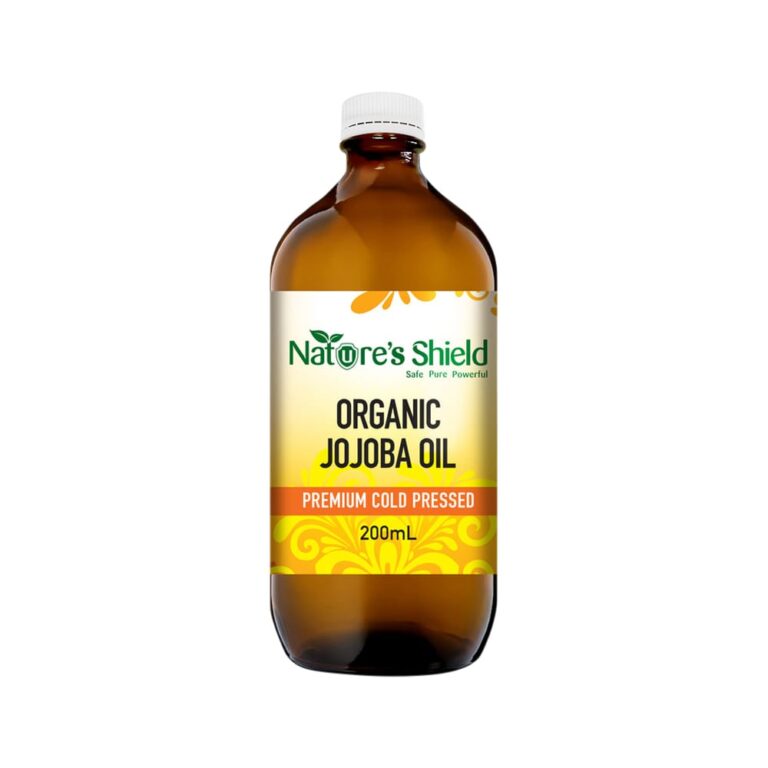Natures Shield Organic Rosehip Oil
Rosehip oil is obtained from the seeds of the fully-ripened fruit of the wild Rosa canina bush. Rosa canina is an undomesticated member of the Rosacea family, which contains all other types of roses. It is grown widely through the temperate zone of the earth, including Asia, Africa, South America and Europe. Nature’s Shield Rosehip oil is certified organic, sustainable and cold-press extracted for preservation of its natural qualities.
Rosehip oil is rich in a cross-section of nutrients which are all highly beneficial for skin health:
Vitamin E, anti-inflammatory and anti-oxidant, may help with sun damage and combat skin’s natural ageing process.
Vitamin C is protective and repairing to UV damage and the effects of ageing. It has also been shown in studies to impact hyper-pigmentation.
Fatty acids, omega 3, 6 and 9, which are essential for regeneration of damaged skin tissue.
Phenols have antibacterial, antiviral and anti-fungal properties, which makes it non-irritating for eczema-prone skin and can make it helpful in irritating skin issues.
Rosehip oil is most prized for its application in signs of ageing skin – wrinkles, sun damage, dryness etc. In studies, it has been shown useful for:
Wrinkles
Scars and burns
Stretch marks
Pigmentation
Dry sensitive skin
Sun damage
Acne and acne scarring
$39.94
Certified Organic
| Certification |
|---|
Product information
| Brand | |
|---|---|
| Certificate | |
| Volume | |
| Product Attributes | , , , |
Customer Reviews
You May Love...
Online Sports Nutrition and Natural Dietetics.
Chances are there wasn't collaboration, communication, and checkpoints, there wasn't a process agreed upon or specified with the granularity required. It's content strategy gone awry right from the start. Forswearing the use of Lorem Ipsum wouldn't have helped, won't help now. It's like saying you're a bad designer, use less bold text, don't use italics in every other paragraph. True enough, but that's not all that it takes to get things back on track.
The villagers are out there with a vengeance to get that Frankenstein
You made all the required mock ups for commissioned layout, got all the approvals, built a tested code base or had them built, you decided on a content management system, got a license for it or adapted:
- The toppings you may chose for that TV dinner pizza slice when you forgot to shop for foods, the paint you may slap on your face to impress the new boss is your business.
- But what about your daily bread? Design comps, layouts, wireframes—will your clients accept that you go about things the facile way?
- Authorities in our business will tell in no uncertain terms that Lorem Ipsum is that huge, huge no no to forswear forever.
- Not so fast, I'd say, there are some redeeming factors in favor of greeking text, as its use is merely the symptom of a worse problem to take into consideration.
- Websites in professional use templating systems.
- Commercial publishing platforms and content management systems ensure that you can show different text, different data using the same template.
- When it's about controlling hundreds of articles, product pages for web shops, or user profiles in social networks, all of them potentially with different sizes, formats, rules for differing elements things can break, designs agreed upon can have unintended consequences and look much different than expected.
This is quite a problem to solve, but just doing without greeking text won't fix it. Using test items of real content and data in designs will help, but there's no guarantee that every oddity will be found and corrected. Do you want to be sure? Then a prototype or beta site with real content published from the real CMS is needed—but you’re not going that far until you go through an initial design cycle.
